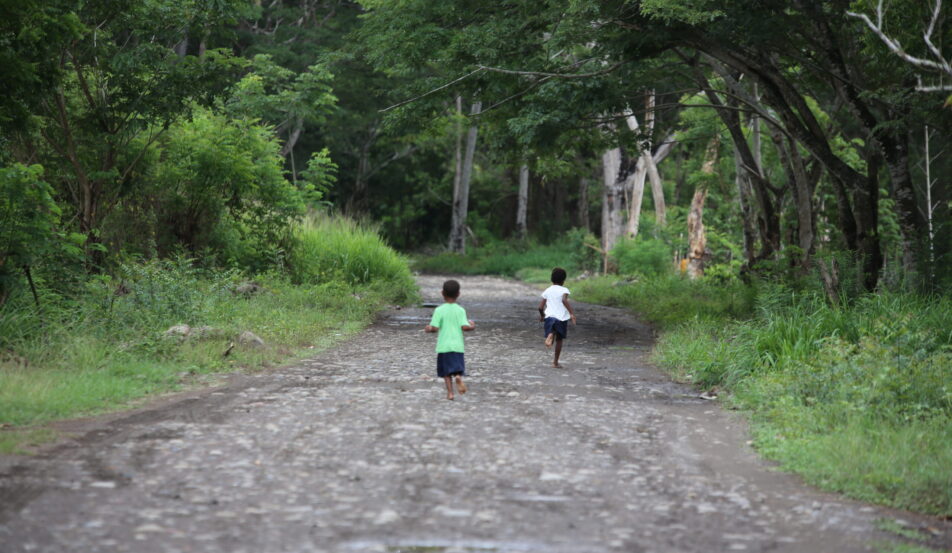Breastfeeding: preventing child deaths
“Breastfeeding gives children all the nutrients they needs,” says Saly (pictured below), a ChildFund-trained community health volunteer in Senegal, to the dozen mothers seated around her on a large straw mat in a courtyard`s dappled shade.
Throughout the world, ChildFund-trained volunteers are working to educate families about the benefits, for both mother and child, of breastfeeding.
The women, each with a child at her breast, listen carefully to Saly. One rocks side to side. Another stares at her nursing baby, holding folds of colourful fabric away from a cheek that should be rounder than it is. Another gently jounces her little girl, who has fallen asleep and hangs limp in her arms.
Under a USAID-supported community-based health program led by ChildFund in Senegal, Saly is helping lead a nutrition and recovery workshop in her community. The participants are mothers with children under two whom health volunteers have identified as malnourished.
The workshops are held for 10 days in a row, and include growth monitoring, individual counselling and nutrition education delivered along with songs and dance and a meal.
“We gather the children with their mothers to teach the mothers how to help their children overcome the malnutrition,” says Saly. “When they return home, they will practice what we teach them here.”
Breastfeeding is a key factor in preventing and treating malnutrition, but its benefits go beyond simply providing nutrients. These are just a few:
Strengthens a newborn`s immune system In many of the communities where ChildFund works, it is news to most mothers that breastfeeding within hours after birth confers antibodies that lay the foundation for a newborn`s immune system. “It`s like a vaccine for the child,” Saly says.
Helps mothers to complete childbirth Immediate breastfeeding benefits the mother as well, causing a hormonal shift that spurs her body to finish the process of childbirth and release the placenta.
Builds a bond between mother and child breastfeeding`s benefits are more than merely physiological. Saly explains, “There is a close relationship between the child and the mother during this time, because breastfeeding develops affection between the child and the mother, and it can help the mother to teach the child other behaviours.”
Increases a child`s IQ A mother`s responses to her baby during feeding can dramatically boost brain development. So, it makes sense that breastfeeding is also associated with a three-point increase in children`s IQ.
Exclusive breastfeeding from birth until six months is the single most effective intervention for preventing child deaths.
It`s surprising, then, that only 39% of women worldwide practice exclusive breastfeeding for their children`s first six months.
Why is that the case? The fact is that while breastfeeding may be natural, it`s not always easy.
What does it take? Primarily, mothers need information and support to make breastfeeding happen. Families, health workers and volunteers, and communities at large, also need information so they understand both why breastfeeding is important and what their role is in supporting nursing mothers.













